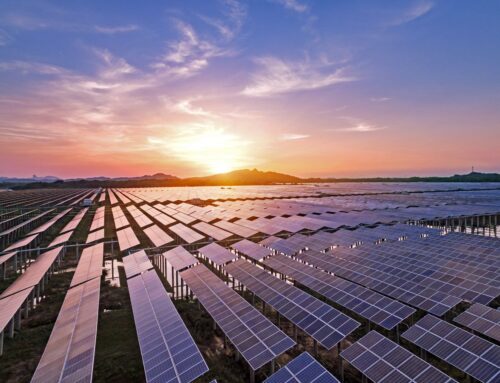Opinion: Alaska’s clean energy future requires leadership tenacity
May 7, 2025

Alaska and its people are a hallmark of resourcefulness, resilience and can-do spirit. Our communities know better than most what it means to build, innovate and power our lives in some of the earth’s harshest and most challenging conditions. Energy development in Alaska isn’t just about economics — it‘s about survival, our success and a prosperous future. Right now, decisions are being made in Washington, D.C. that will shape Alaska’s energy future and security for generations to come.
Alaska’s energy landscape is unique. We are a young state that is poor in electrical energy infrastructure. We don’t have the luxury of plugging into a national grid or importing cheap energy from neighboring states. We produce what we consume and fully utilize what we develop. In many rural and coastal communities, the most cost-effective path forward is clean, local, renewable energy produced in Alaska.
This is a bicameral, bi-partisan, state, federal and local “yes” issue we can all agree on. In Alaska, energy development is a shared common and solid ground combined with a universal commitment to powering our communities, growing our economy, supporting jobs, creating prosperity and securing our future. Maintaining a stable, predictable federal energy policy and credits is essential to keeping our progress and prosperity on track.
In our state, energy policy isn’t theoretical. It‘s pragmatic and practical. It‘s the difference between affordable power and energy poverty. It‘s the difference between opportunity and prosperity or stagnation.
Across Alaska, federal investments through programs like the Infrastructure Investment and Jobs Act (IIJA) and the Inflation Reduction Act (IRA) have helped our communities pursue innovative energy solutions — from hydropower to geothermal to emerging tidal energy projects. These aren’t distant technologies — they are energy systems already lowering energy costs and creating jobs in some of the most remote parts of the country.
However, continuing this progress and working towards a brighter energy future requires diligence.
As Congress considers changes to the tax code that could eliminate key energy credits, it is essential that our leaders protect Alaska’s energy and transmission development. These credits have been vital to projects that lower energy costs and expand access to sustainable infrastructure across the state.
ADVERTISEMENT
Repealing or significantly altering these incentives would create uncertainty for ongoing efforts and could jeopardize critical funding streams that organizations like the Alaska Energy Authority, local utilities and energy developers depend on. Without these resources, progress on affordable, long-term energy solutions for Alaska’s communities is at risk.
Sens. Murkowski and Sullivan have long understood this reality and have introduced, passed and secured several pieces of energy legislation to help Alaska. Their leadership has been essential in ensuring that Alaska’s voice is heard and felt in Washington. Rep. Begich has joined this effort and recently supported similar energy legislation, working with our delegation. Gov. Dunleavy and his administration are unwavering in their commitment to lower the cost of energy. Progress is being made. But our work is not finished, and we require an Alaskan brand of tenacity to complete what we have started.
Now is the time to unleash Alaska’s energy resources and double down on policies that incentivize energy innovation, support infrastructure and reduce energy costs for our economy to help us achieve energy and national security. Alaska has the resources, the tenacity, the expertise and the sheer will to lead in clean energy development. We need smart, stable federal policy to help Alaska help America make it happen. Preserving and expanding energy tax credits for Alaska’s energy resources will help ensure that both Alaska and America are energy secure.
Duff Mitchell is the managing director of Juneau Hydropower, Inc., and serves as vice chairman on the Alaska Energy Authority board of directors, previously served on the Alaska Energy State Task Force and co-chairs the Legislative Affairs Committee for the National Hydropower Association.
• • •
The views expressed here are the writer’s and are not necessarily endorsed by the Anchorage Daily News, which welcomes a broad range of viewpoints. To submit a piece for consideration, email commentary(at)adn.com. Send submissions shorter than 200 words to letters@adn.com or click here to submit via any web browser. Read our full guidelines for letters and commentaries here.
Search
RECENT PRESS RELEASES
Related Post



